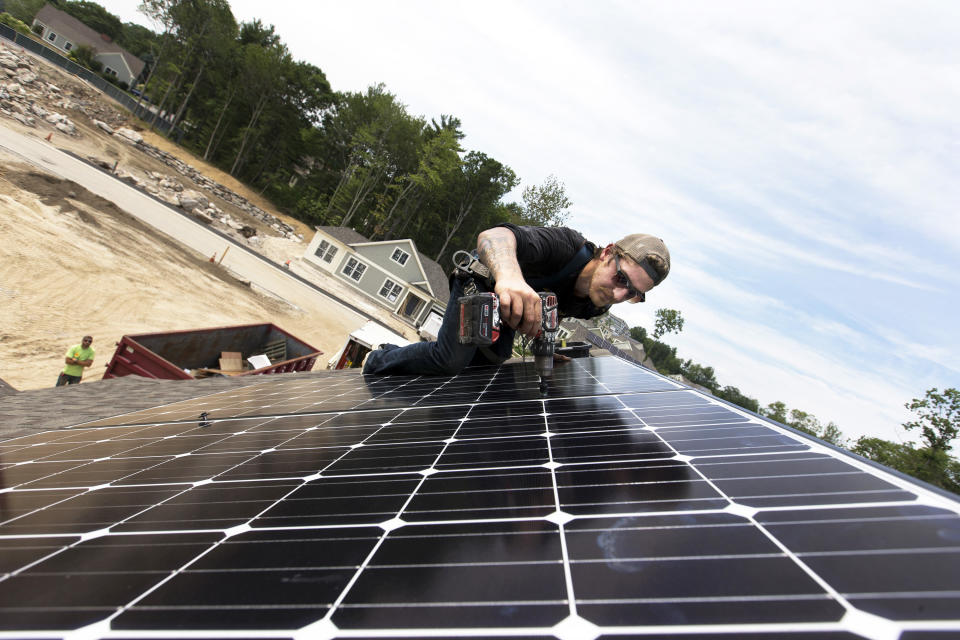President Donald Trump imposed a 30% tariff on imported solar cells and panels--most of which are Chinese made--in a move that some in the industry argue will cut the flow of cheap panels to installers in the U.S. and lead to job losses.
The tariffs will decline over a four-year period. The first 2.5 gigawatts of imported solar cells are excluded from the additional tariff.
The U.S. Trade Representative made the recommendations to Trump after consulting with the interagency Trade Policy Committee and following findings by the U.S. International Trade Commission, which ruled in September that imports of low-cost solar panels have hurt U.S. manufacturers.
"These cases were filed by American businesses and thoroughly litigated at the International Trade Commission over a period of several months," U.S. Trade Representative Robert Lighthizer said in a statement. "The President's action makes clear again that the Trump Administration will always defend American workers, farmers, ranchers, and businesses in this regard."
Although the tariffs are meant to apply to any foreign company, the USTR focuses on China. As a result of the country’s policies and subsidies, China’s share of global solar cell production has exploded from 7% in 2005 to 61% in 2012, according to the USTR fact sheet. China produces 60% of the world’s solar cells and 71 percent of solar modules.
The issue has split the solar industry. On one side are a few solar manufacturers like Suniva and SolarWorld that say low-cost imports have made it impossible to be profitable. On the other side is the U.S. solar installation industry, which has benefited from low-cost panels that have led to explosive growth in rooftop systems on homes and commercial buildings as well as massive solar farms.
The Solar Energy Industries Association, a trade organization formed to represent all aspects of the U.S. solar industry, says the decision will cause the loss of roughly 23,000 American jobs this year, including many in manufacturing. SEIA says the decision will result in the delay or cancellation of billions of dollars in solar investments.
"While tariffs in this case will not create adequate cell or module manufacturing to meet U.S. demand, or keep foreign-owned Suniva and SolarWorld afloat, they will create a crisis in a part of our economy that has been thriving, which will ultimately cost tens of thousands of hard-working, blue-collar Americans their jobs," said SEIA President and CEO Abigail Ross Hopper.
There were 38,000 workers in solar manufacturing in the U.S. at the end of 2016, according to SEIA, adding that all but 2,000 made something other than cells and panels, the subject of the trade case.


